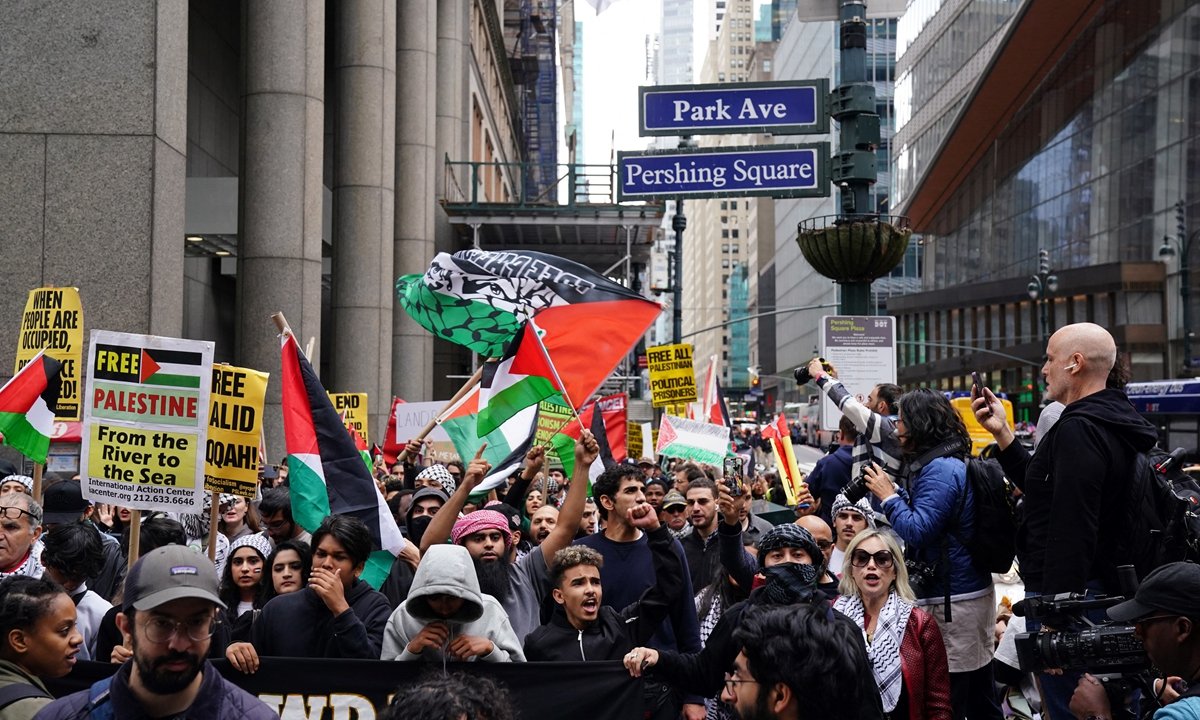In the aftermath of the Hamas attack on Israel, the United States has made a controversial move, sending weapons and warships to Israel. Chinese observers have criticized this decision, warning that it will only exacerbate tensions and lead to a humanitarian crisis. Furthermore, they argue that Washington’s response reflects its history of indecisiveness and failed policies in the Middle East.
The United States has a track record of intervening in international conflicts, often taking a one-sided approach. In the case of the Israel-Palestine conflict, this approach is no different. By sending military equipment to Israel, the U.S. is effectively providing support to one side of the conflict, despite its claims of promoting peace in the region. Chinese observers argue that this approach only serves to escalate tensions, especially when one considers the military disparity between Israel and Palestine. Tian Wenlin, a research fellow at the China Institutes of Contemporary International Relations, emphasizes that if the U.S. genuinely seeks peace, it should work to de-escalate the situation rather than taking sides.
The situation in the Gaza Strip continues to deteriorate, with Israeli military actions causing a rising death toll among Palestinian militants and civilians. Israel’s decision to impose a siege on the Gaza Strip has only added fuel to the fire. Observers predict that tensions will persist in the coming weeks, as Israeli Prime Minister Benjamin Netanyahu, facing a serious threat to his government, may opt for a harsh response to the Hamas attack. Additionally, Hamas, viewed as a last-ditch effort to disrupt the reconciliation between U.S.-backed Saudi Arabia and Israel, is unlikely to back down. In this critical moment, mediation is crucial, and the U.S.’s involvement in fueling the conflict risks worsening the humanitarian crisis and potentially spreading the conflict further.
Liu Zhongmin, a professor at the Middle East Studies Institute of Shanghai International Studies University, suggests that the U.S. decision to send warships is a symbolic gesture of support for Israel. It also serves as a deterrent to Iran, given that ground offensives are a common tactic against Hamas, which often operates among civilian populations. Liu believes that the U.S. is at a loss regarding how to respond to Hamas’ surprise attack, highlighting a broader pattern of failed Middle East policies.
Chinese observers argue that the root cause of such policy failures lies in the U.S.’s inconsistent approach to the Middle East. They contend that Washington’s pursuit of normalization between Israel and Arab nations while ignoring the needs of the Palestinian people reflects its lack of a coherent strategy in the region. The U.S. seems torn between reducing its engagement in the Middle East and preventing China and Russia from filling the resulting power vacuum. This indecisiveness has left the U.S. in its current predicament.
The consequences of the Hamas attack extend beyond the Middle East and are beginning to impact U.S. domestic politics. Critics, including Republican candidates, see the incident as evidence of U.S. weakness on the global stage. They argue that the Biden administration bears some responsibility for the crisis. Biden’s hopes of brokering Saudi Arabia-Israel normalization to boost his Middle East image may now be in jeopardy, potentially affecting his performance in the upcoming presidential election.
As tensions escalate, the U.S. is also attempting to pressure China to take a tougher stance on Hamas. U.S. Senate Majority Leader Chuck Schumer has called on China to support Israel in the wake of the attacks. China’s response has been consistent, advocating for an immediate ceasefire and a peaceful resolution to the conflict. China has expressed sorrow over civilian casualties and condemned violence against civilians, emphasizing the importance of international cooperation to de-escalate the situation.
China has actively supported the resumption of peace talks in the Middle East over the past year. Despite the escalation of violence in the Israel-Palestine conflict, Chinese authorities stress the importance of dialogue, mutual respect, and finding acceptable solutions to complex issues. Schumer’s remarks have underscored the urgency for the U.S. and China to engage in discussions on Middle East matters.
In the international arena, the United Nations Security Council held an emergency meeting following the Hamas attack. The U.S. called for strong condemnation of Hamas’ actions, but no immediate action was taken, highlighting the complex and sensitive nature of the situation.
In summary, the U.S.’s decision to send weapons and warships to Israel in the wake of the Hamas attack has drawn criticism from Chinese observers. They argue that this unilateral approach exacerbates tensions, reflects a history of indecisiveness in U.S. Middle East policy, and risks further destabilizing the region. In this volatile situation, China calls for dialogue, a ceasefire, and international cooperation to achieve peace.
Read More:
